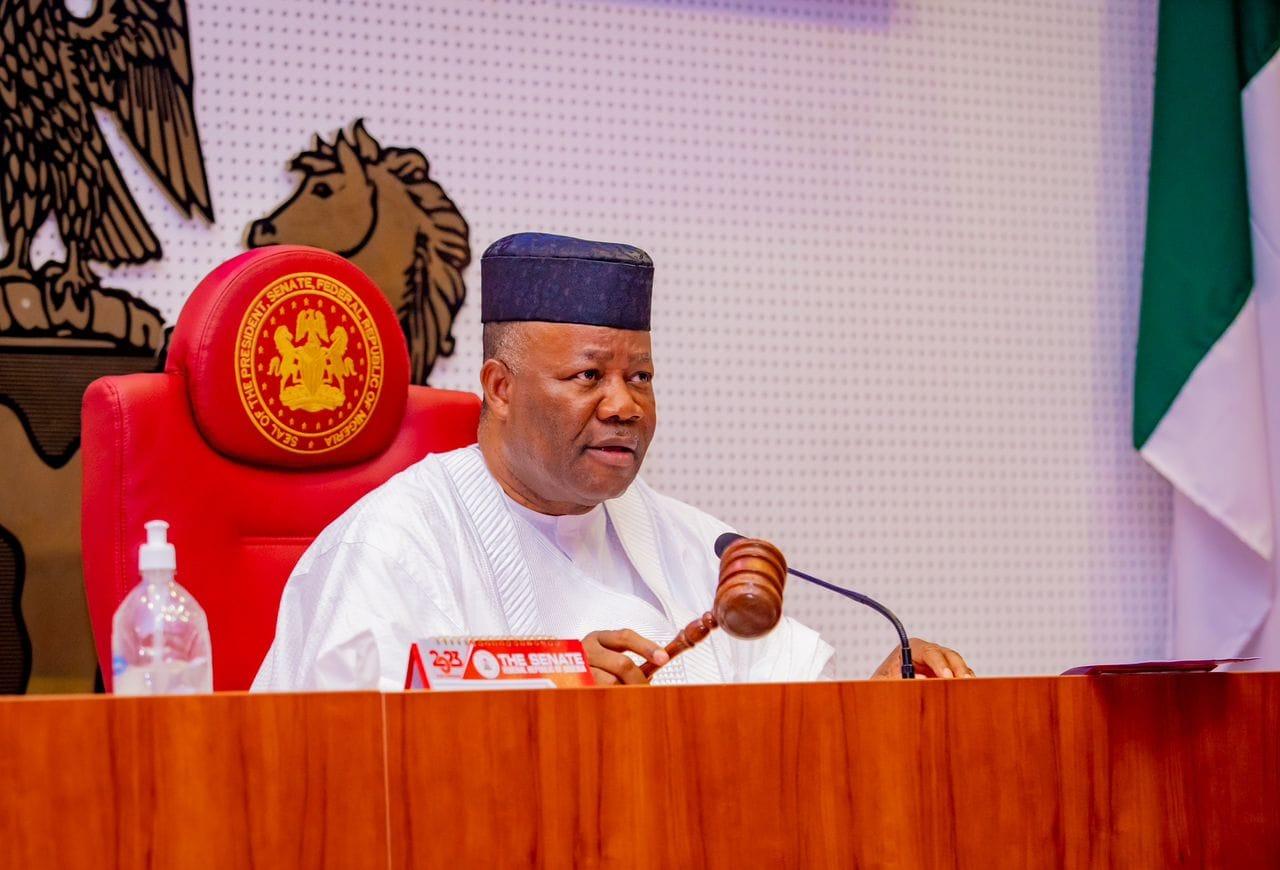A Defiance That Defines a Nation
In a country often weighed down by tales of graft and greed, Senator Natasha Akpoti-Edughen emerges as a beacon of unyielding courage. Her battle against systemic corruption is not just a political struggle—it’s a solemn declaration to the Nigerian spirit of resilience. This is the story of a woman daring to rewrite Nigeria’s narrative, proving that patriotism thrives in the fight for accountability.
Table of contents [Show]
- The Theatre of Power: Nigeria’s Systemic Rot—and the Seeds of Resistance
- The Gladiators: A Clash of Visions
- Senate President Godswill Akpabio: The Old Guard’s Sentinel
- The Spark: A Budget Battle for Nigeria’s Future
- The Playbook of Suppression—and the Surge of Citizen Power
- Echoes of the Past, Fuel for the Future
- The People’s Fury: From Ajaokuta to Abuja
- The Stakes: Democracy’s Last Stand or Kleptocracy’s Triumph?
The Theatre of Power: Nigeria’s Systemic Rot—and the Seeds of Resistance
Nigeria’s political landscape, scarred by brazen corruption and state capture, often feels like a labyrinth of despair. Yet within this chaos, a new generation of leaders and citizens is rising. From phantom budget projects to the privatization of institutions like INEC and the EFCC, the rot runs deep. Transparency International’s ranking of Nigeria as 145th globally on corruption perceptions underscores the crisis. But beneath the surface, hope flickers: citizen-led movements and figures like Akpoti are turning the tide, one truth at a time.
Key Issues:
- Budget Padding: ₦3 trillion mysteriously added to the 2024 budget—a theft Nigerians now demand to reclaim.
- State Capture: Institutions weaponized, but citizens are fighting back with data, protests, and lawsuits.
The Gladiators: A Clash of Visions
Senator Natasha Akpoti-Edughen: The Builder Turned Revolutionary

Akpoti, born to a Nigerian father and a Ukrainian mother, personifies the power of variety. She is a University of Abuja alumna who initially advocated for improvement through her Builders Hub Impact Investment Program (BHIIP), which fosters grassroots innovation. Her efforts to restore the Ajaokuta Steel Mill, a symbol of Nigeria's suppressed potential, earned her the Nigerian Society of Engineers' Presidential Award and the African Women Leadership Award.

In 2019, she stormed Kogi’s gubernatorial race under the SDP, undeterred by violence and sabotage. By 2023, she claimed a Senate seat under the PDP, becoming Kogi Central’s first female senator. To supporters, she is “Iron Natasha”—a nickname forged in her relentless pursuit of justice.
Senate President Godswill Akpabio: The Old Guard’s Sentinel

Once celebrated as Akwa Ibom’s “Uncommon Transformer” for infrastructure strides, Akpabio now faces allegations of turning the Senate into a “cash-and-carry” empire. His past—a ₦108 billion embezzlement scandal as governor—haunts his present, symbolizing the entrenched rot Akpoti challenges.
The Spark: A Budget Battle for Nigeria’s Future
In March 2024, Akpoti ignited a firestorm by exposing ₦67 billion in fraudulent allocations tied to Akpabio’s leadership. Brandishing documents during a Senate session, she detailed phantom projects in loyalists’ states. Akpabio silenced her, thundering, “This chamber will not be ridiculed!” Undaunted, she took her fight public: “When truth is muzzled, democracy bleeds.”
The clash became a microcosm of Nigeria’s struggle: accountability vs. impunity.
The Playbook of Suppression—and the Surge of Citizen Power
Akpabio’s tactics—procedural sabotage, smear campaigns labeling Akpoti a “foreign agent,” and a compromised Ethics Committee—mirror Nigeria’s systemic playbook. Yet, the response has been historic:
- #LetNatashaSpeak trended nationwide, with youth protests flooding Abuja and Kogi.
- Tech collectives like BudgIT and Tracka amplified her evidence, using open-source tools to dissect budget fraud.
- Civil society coalitions declared: “If a senator can’t speak, who will? We demand accountability—not silence.”
Echoes of the Past, Fuel for the Future
Nigeria’s history is littered with scandals—the Nassarawa ₦8 billion ghost workers, Kano’s politicized emirate dethronement, and judicial bribes to nullify elections. But today, a shift brews: citizens are leveraging technology, litigation, and viral hashtags to reclaim power. Akpoti’s fight echoes this transformation—a blend of old-school activism and digital resistance.
The People’s Fury: From Ajaokuta to Abuja

The #LetNatashaSpeak movement transcends politics. It’s a cultural reset. Protesters draw parallels between her steel-mill crusade and her Senate stand: “She fought for Ajaokuta; now she fights for us.” Her Ukrainian-Nigerian identity became a rallying cry: “My blood is a mix of two nations that fought for freedom. Nigeria’s struggle is mine,” she declared.
The Stakes: Democracy’s Last Stand or Kleptocracy’s Triumph?
Akpoti’s lawsuit against the Senate (filed May 2024) is more than legal drama—it’s a referendum on Nigeria’s soul. With Akpabio eyeing the 2027 presidency, the nation teeters between oligarchy and renewal. “They want to break me,” Akpoti told The Guardian. “But I’ve fought for Ajaokuta. I’ll fight for Nigeria.”
The Price of Pride
Natasha Akpoti’s journey—from steel mills to the Senate—is a mirror held up to Nigeria. It reflects both the scars of corruption and the unbreakable will of its people. Her battle with Akpabio is not just about budgets; it’s a choice between two identities: a nation plundered or a nation proud.
“The price of liberty is eternal vigilance,” philosopher John Philpot Curran once warned. For Nigeria, vigilance now wears the face of resistance—and pride.
Join the Fight
- Support Transparency*: Follow @BudgIT @TrackaNG to monitor public funds.
- Amplify Voices: Use #LetNatashaSpeak to demand legislative accountability.
- Local Advocacy: Join citizen coalitions like Enough is Enough Nigeria.











